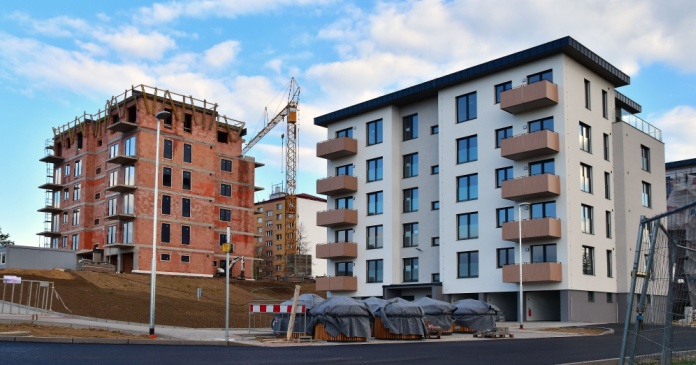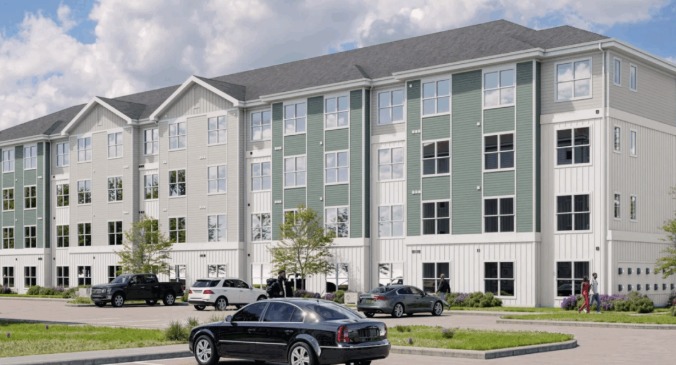Running water, working heat, timely repair, clean apartments, trimmed lawns and a measure of civility. These were the standards of good service in rental housing for years. How about a bagel breakfast? Concierge service? Dry cleaning at the door? Yoga classes? Wine tasting? A limo to the mall?
Low interest rates and soft rental markets are causing management companies to re-examine strategies for attracting and retaining residents. “With monthly mortgage payments so close to rental payments, there’s no longer a price advantage to renting,” says Mark Fogelman, President of Fogelman Management Company based in Memphis, Tennessee.
Scott Mencaccy, President of American Management Services (AMS) West in Seattle, Washington, says, “We have to give residents other reasons to stay. More people can now afford to buy a house.”
Fogelman and Mencaccy are finding that their best weapons in the war with mortgage banks are personalized onsite service and top-notch amenities. “We make sure our residents know that they are the most important person to our company,” says Fogelman, “and we start marketing to them for renewal from the moment they move in.”
Fogelman Management Company owns and manages 16,000 apartment units in the Southeast and Midwest, mostly Grade A garden-style apartment complexes in the suburbs. Even in strong market periods, there is plentiful supply. Average vacancy rates in regions served by Fogelman Management fall between 12 and 18%.
“In softer markets, it is more about retention rather than new customers,” says Melissa Smith, Vice President of Management Development at Fogelman. “A free month of rent or a break on the security deposit may attract a tenant, but it’s not what will make them stay.”
BEYOND EXPECTATIONS
Five years ago, when the regional market began to soften, Smith set out to develop a program that would attract and retain residents. She brought together focus groups of company associates, from top level managers to groundskeepers, and asked them to consider: How do we become best known in our market? How do we make Fogelman everyone’s first choice? And how do we create incentives for them to stay? A lot of the talk centered around expectations.
“We realized that we all have expectations,” says Smith, “and you can meet them, fail to meet them, or exceed them.”
Beyond Expectations became the company’s tagline and its philosophy. Through the Beyond Expectations program Fogelman strives to exceed residents’ expectations at all levels. The program also provides incentives to company associates to consistently provide topnotch service and a welcoming atmosphere. Every morning, residents in the company’s properties will find a Starbucks coffee bar and pastries in the lobby or at the front gate. Resident service requests are handled within 24 hours, and staff follows up with a postage-paid feedback form. Renewing residents are treated to a wine and cheese party in the clubhouse. And, if it’s your birthday, you are likely to find a card and cheerful balloons at your door.
“It’s not a lot, and it’s not hard. It’s just a matter of doing it,” says Smith. Fogelman links resident satisfaction with employee rewards. Associates earn points toward rewards, like frequent flyer miles, based on positive resident response on returned feedback cards. Fogelman’s 450 associates can earn bonuses from $50 gift certificates to weekend stays at four-star hotels.
Community-building is integral to Fogelman’s approach. “The more you know your neighbors, the more comfortable you are in your home,” says Smith. So Fogelman makes it easy for neighbors to meet. Property managers sponsor holiday parties and social functions throughout the year, and hold seminars on topics of interest to residents. In Kansas City one observant manager noticed that seniors in his complex were feeling bored and unneeded, while families were stressed. He helped team up these seniors with parents and kids. On weekday afternoons the seniors host an after school activities program for the children, and on Friday nights provide childcare for a Parents Night Out. “It works well for everyone,” says Smith.
To prove that they are willing to go the extra mile, Fogelman’s managers provide limousine service to nearby malls during peak holiday shopping season and make it available to children on their first day of school.
MEETING EMERGING NEEDS
Karel McClellan, Strategic Marketing and Communications Consultant for the B.F. Saul Company in Washington D.C. recalls a time when occupancy was 100% in every building in town. That has changed. While the Washington metropolitan area is still one of the hottest real estate markets in the country, occupancy rates in rental buildings have dipped to 90-92% and competition for residents has intensified. B.F. Saul has distinguished itself from competitors with a tradition of service and elegance. Tanya Marhefka, who manages the company’s historic Kennedy Warren building says that the kind of service other companies are rediscovering have been a tradition at B.F. Saul since the 1930s.
The 431-unit Kennedy Warren is the only grand apartment building from Washington’s gilded age that is still a rental property. Host to many social galas and inaugural balls over the years, the atmosphere in the building today is elegant and welcoming.
“There is a warm feeling about being in the building,” says Marhefka. “That doesn’t happen unless you have good service and people are treated well.”
The KW’s friendly front desk staff take pride in helping residents with “aggravation elimination” and in providing efficient service. They check in visitors, receive packages, call taxis, facilitate work orders and help to find lost cats and keys. Residents always receive a personal call when a package arrives, and even personal delivery if they wish. Work order requests are handled within 24 hours. Residents can also send and receive faxes, get photocopies made and drop off and pick up dry cleaning at the front desk. KW staff facilitate phone and cable installation. Busy residents don’t have to wait at home for technicians or repairmen to arrive. Building amenities include a children’s play room, several elegant lounges, grand ballroom, fitness center, terrace deck, an ATM, FedEx and UPS pickup boxes and even a small convenience store.
B.F. Saul is always on the lookout for emerging needs and expectations. “The big issue today is time,” says Marhefka. “When people decide to rent an apartment rather than buy a condo, they know they are getting a full-service building. They can avoid all those management headaches.”
The company is anticipating emerging market needs with the construction of a new wing. While staying true to the building’s historic character, the new wing will include high-speed cable, fitness room and lap pool, business center and conference room and a piano bar where residents can unwind.
One indicator of how new technologies are changing management practices even in venerable buildings such as the Kennedy Warren is the package room. “So many people are ordering items over the Internet, that we’ve had to expand the size of our package room to accommodate them,” says Marhefka.
USING TECHNOLOGY TO SERVE RESIDENTS
In New York City, the family-owned Albanese Organization and its management company Rose Associates focus on easing the stresses of urban life with the help of high-tech information systems and a personal touch.
“Most people in Manhattan live at a fast pace and work hard. So they want good quality down time,” says Michael Gubbins, the manager of the company’s new flagship residential building, the Solaire. “We try to anticipate their needs.”
Solaire’s services include a 24-hour concierge desk with an array of convenient services. Albanese supports these with a computerized information and management system called BuildingLink.com. Residents can submit work orders by email, and access community information on Solaire’s website. The concierge desk alerts them to news or packages via email. Gubbins monitors and manages the building’s mechanical systems, work orders, and preventive maintenance schedule through the computerized system.
“By being able to monitor everything so effectively,” says Gubbins, “we don’t have to wait to get a complaint. We fix it right away.”
Albanese integrated many technical and environmental innovations into the Solaire, including solar panels and energy-conserving mechanical systems. Beautiful non-toxic materials are used throughout and indoor air is double-filtered and balanced for humidity. Director of Residential Marketing Lydia Haran says the environmental features have been among the building’s biggest draws.
Even with all of the advanced technical systems, Gubbins remembers the personal touch. The 293-unit Solaire has attracted many young professionals, 50% of them with young families. When a child is born, the staff orders flowers for the new parents. Newlyweds are treated to champagne. When residents are sick, staff check in on them and run to the pharmacy if needed.
Onsite amenities include a health club, a children’s play room with a small attached kitchen, and a terrace garden. Residents are invited to enjoy wine tastings, seminars, and any of 40 fitness and movement classes offered at the health club, including a children’s stretch class. The most popular class, perhaps no surprise in fast-paced Manhattan, is yoga. The children’s room with its convenient kitchenette has proven very popular with both kids and moms. Albanese marketing and management staff survey residents regularly. The building achieved 100% lease-up in six months and now has a long waiting list.
MORE THAN JUST AN APARTMENT
Scott Mencaccy, President of American Management Services West (AMS West), oversees the management of 25,000 rental units for Pinnacle Realty Management. He has two priorities to keep residents happy: “The first and most basic thing is to make sure their living environment is in A-1 condition. Taking care of work orders within 24 hours is a must.”
While AMS West’s market is not soft, it is competitive. Vacancy rates range from 5 to 8%. AMS West’s marketing strategy has shifted in recent years from spending money on advertising to spending money on existing residents.
“We have to be better than the next management company,” says Mencaccy. “The minute a resident goes out and joins a gym instead of using ours onsite, they have one less reason to stay.”
AMS West property amenities include attractive outdoor areas, resort-style pools and health clubs, high-speed cable, and adaptable apartments that accommodate families or roommates. Services range from 24-hour concierge service to social events such as poolside barbecues, Monday night football parties, softball games, holiday celebrations, summer jazz evenings, and wine and cheese tastings. There are also after school kids’ clubs, neighborhood watches, and seminars. All of AMS West’s newer Class A and B properties are equipped with a business center and media rooms.
“Whether it’s an A or C property,” says Mencaccy, “you can’t curb the service.”
Like Albanese, AMS is relying more on internet-based systems to track and share information. Residents can submit work requests by email, and property websites provide community information. At Fogelman, 80% of the property managers use websites to keep residents informed. Melissa Smith recalls one inventive property manager who generated a phenomenal response by starting a bingo game on the property website to bring attention to it.
“We’ve changed our attitude from ‘here are the rules’ to ‘we’re really glad you’re here,'” says Smith. “When times are good, it’s easy to forget that real estate is cyclical. For a while, all we did was market. It didn’t matter who came and went, there was always somebody behind them coming through the door.”
Smith believes managers in the past paid so much attention to fulfilling industry regulations they sometimes forgot they were in the service business.
“Landlords are becoming more sensitive to the fact that these are not just apartments, but homes. They are showing much more of a willingness to work with people,” says Marhefka.
Author: Stella Tarnay
















